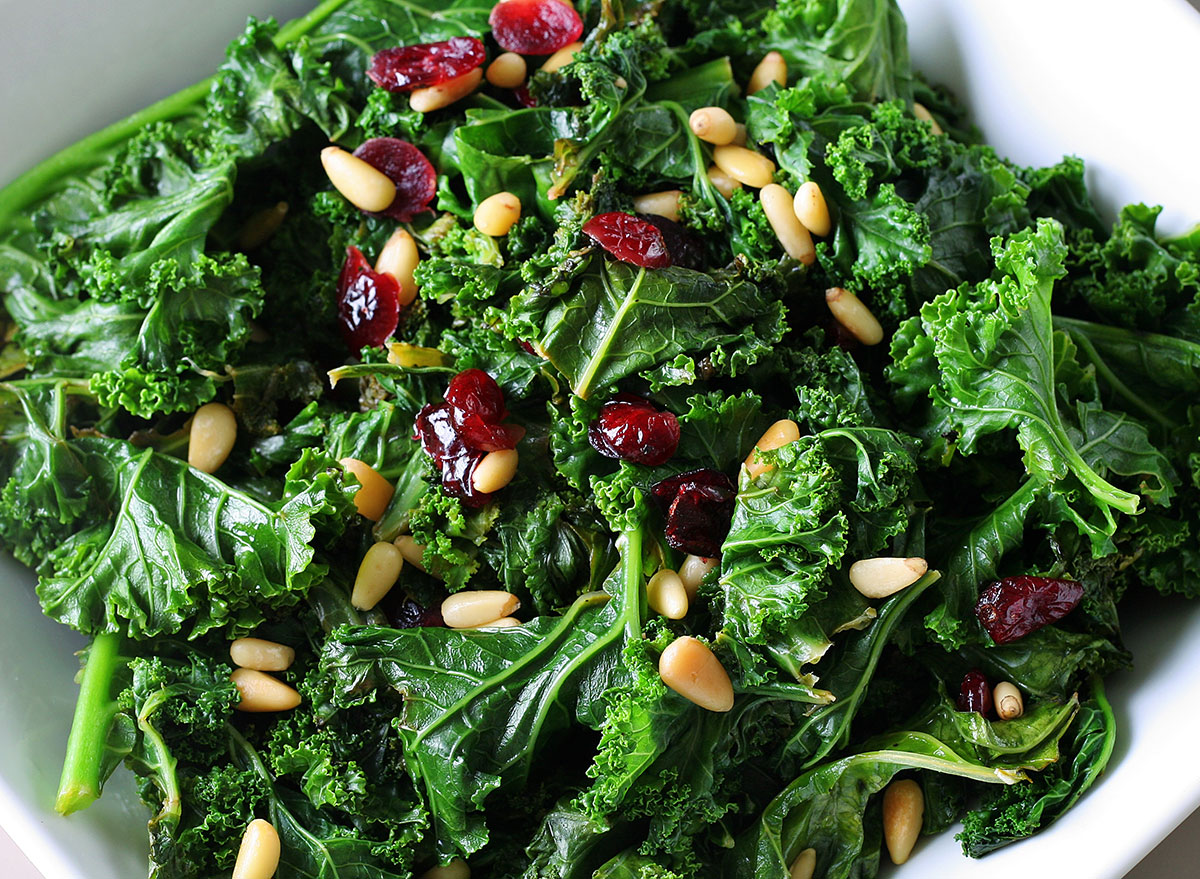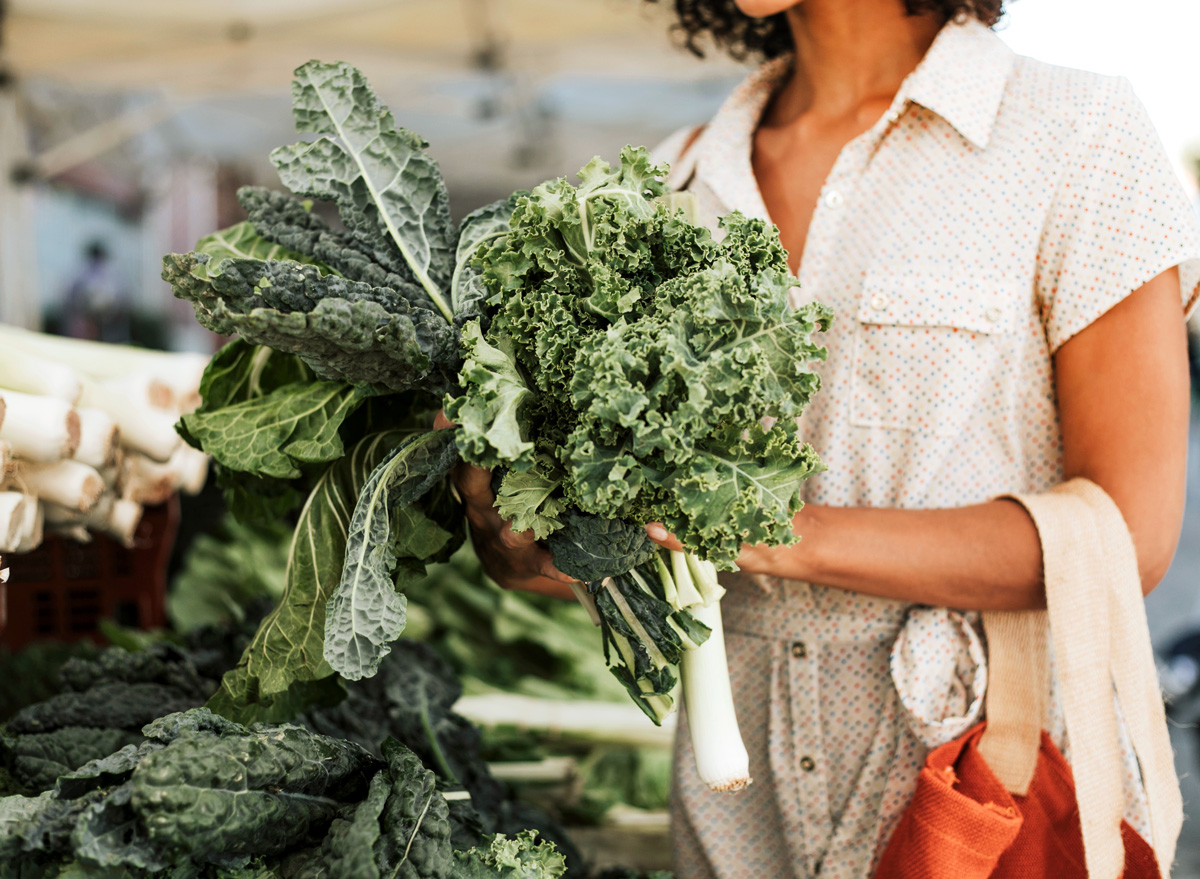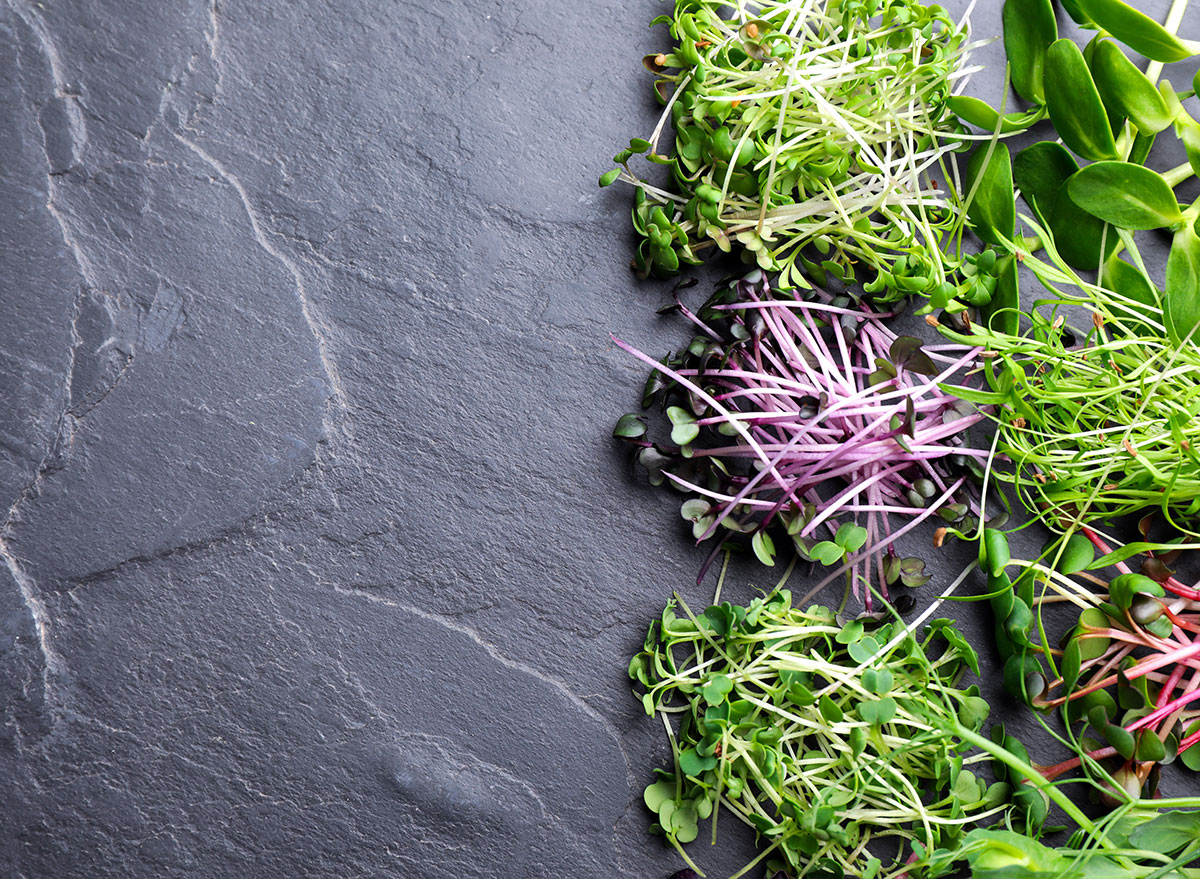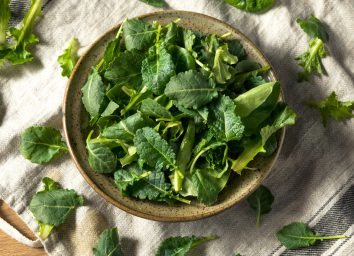Major Effects of Eating Leafy Greens, According to Science

Spinach, kale, collard greens, cabbage, and beet greens—these are just a handful of the most commonly consumed leafy green veggies. Not only are they rich in key vitamins and minerals, but they’re also very versatile and can be prepared in a number of different ways.
Whether you enjoy leafy greens raw in a salad, blended in a fruit smoothie, or cooked and served as a hearty side, there are many ways you can incorporate these nutrient-dense veggies into your diet. Below, learn what the latest research has revealed about the potential health benefits of leafy greens. After, don’t miss The 7 Healthiest Foods to Eat Right Now!
Lower your risk of heart disease.

There are many reasons why you should eat a bowl filled with fresh, leafy green veggies. Now, there’s even more incentive to grab a bundle of kale and start chopping. A new study conducted by Edith Cowan University found that eating one cup of raw or one-half cup of cooked leafy greens daily significantly reduced participants’ risk of heart disease.
Researchers looked at data from more than 50,000 Denmark residents over a 23-year period. Those who consumed the most nitrate-rich leafy greens had lower systolic blood pressure and between a 12 to 26% lower risk of heart disease. So, who wants to order a salad full of greens for lunch today?
Here’s What Happens To Your Body When You Eat Leafy Greens.
Leafy greens may decrease inflammation in the body.

One side effect of eating leafy greens? Bad gas. Yep, a recent study out of the University of Vienna and the University of Konstanz found that a sulfur-containing sugar in leafy green veggies called sulfoquinovose promotes the growth of healthy bacteria in the gut. In fact, as the microbiologists note, it helps Eubacterium rectale grow—one of the 10 most common gut microbes found in healthy people.
If you consume a normal amount of spinach, sulfoquinovose can have an anti-inflammatory effect on the body. At the same time, leafy greens may also cause bad gas in some people since Eubacterium rectale produces hydrogen sulfide, aka a gas that smells like rotten eggs. This is a great reminder to enjoy your leafy greens—just don’t overdo it to avoid experiencing this unfavorable outcome!
They may help to improve your muscle strength.

Popeye may have been onto something with regard to spinach consumption and muscle gains, and it all has to do with the nitrates found in leafy greens. According to a recent study published in The Journal of Nutrition, eating just one serving of leafy greens every day can help improve muscle strength and mobility.
“Basically, we are observing up to 11% stronger leg strength when you consume about 1 serving of nitrate-rich vegetables each day compared to individuals with low nitrate intake,” lead researcher Marc Sim, Ph.D. told Eat This, Not That! in an interview. “This is quite significant, especially in the context of older people who are most at risk of falls and resulting injuries such as fractures.”
Pair leafy greens with a lean protein like chicken or even another plant-based protein like black beans to help give your muscles the fuel they need to stay strong.
Reduce your risk of cancer.

When you think of leafy green veggies, microgreens may not be the first thing that comes to mind—they’re a bit niche! Often used as a garnish on salads and other veggie-packed dishes at health-forward eateries, microgreens are small, immature greens that are produced from the seeds that grow both vegetables and herbs.
One 2012 study found that microgreens can contain up to 40 times more nutrients compared to their full-grown counterparts. They’re also loaded in antioxidants called polyphenols and may lower the risk of various cancers, per a review in the journal Nutrients.
For more, be sure to check out What Happens To Your Body When You Eat Leafy Greens.








